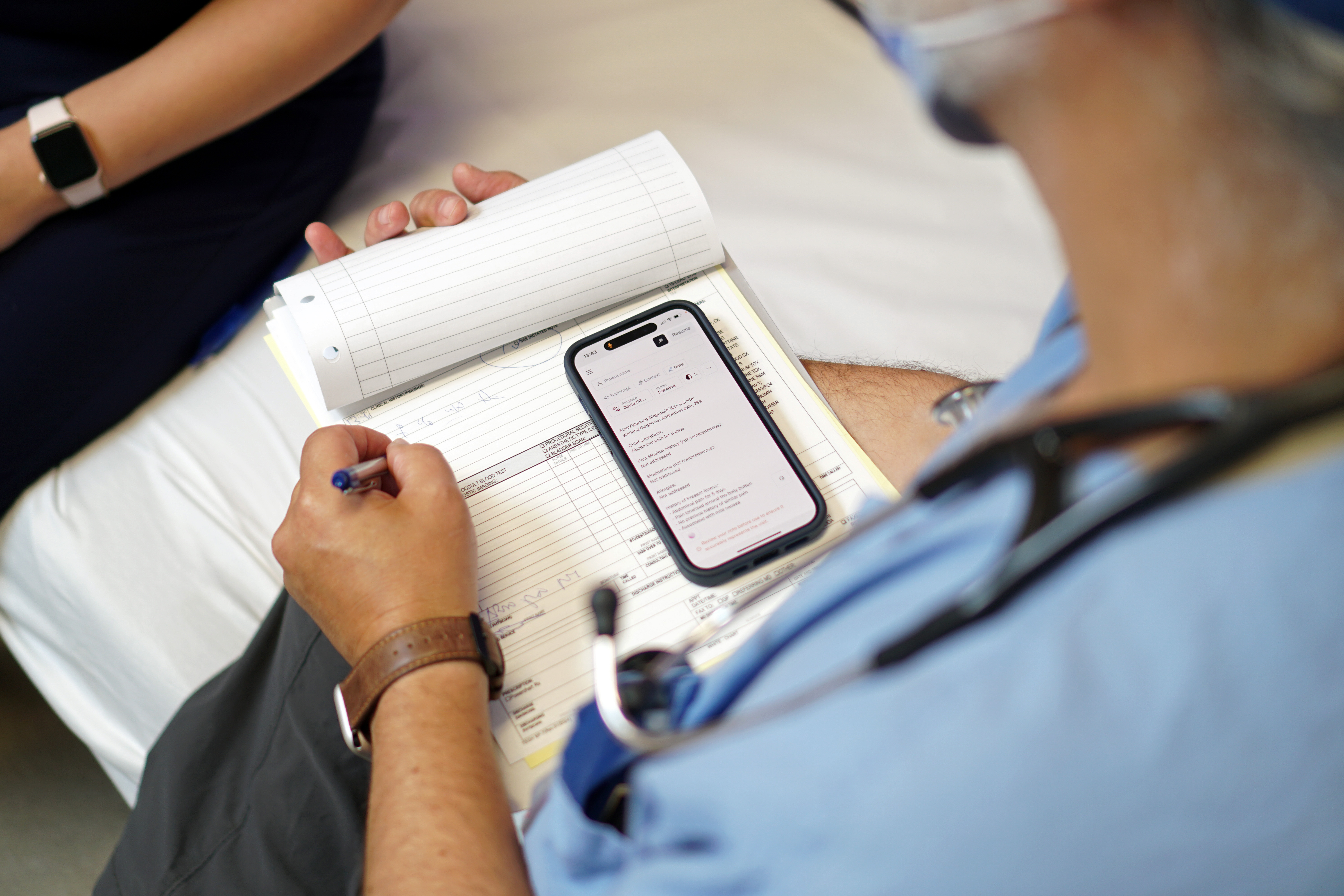Dr. David Rosenstein, Emergency Physician and Information Technology
Lead in MGH’s ED, holds a smartphone displaying the Ambient Scribe tool.
By: Victoria Gemma, Summer Student, Michael
Garron Hospital
Michael
Garron Hospital (MGH) is one of the first hospitals in Ontario to adopt a new
artificial intelligence (AI) tool to help reduce emergency department wait
times, improve care for patients, and lessen the administrative burden on
emergency physicians that can lead to burnout.
Called
Ambient Scribe, the tool allows physicians in MGH’s Stavro Emergency Department
(ED) to record interactions with consenting patients through a secure
smartphone app. It uses AI technology to listen to, transcribe and produce
clinical notes from conversations between patients and their physicians.
The
technology follows Canadian privacy laws. Physicians are able to review and
edit the notes produced by Ambient Scribe, and add notes related to a patient’s
diagnoses, physical exams, treatment plans, labs and discharge instructions.
The
notes are then easily transferred to the hospital’s patient health information
database, where other members of a patient’s care team can review them to
ensure the patient gets the continued care they need.

Dr. Rosenstein speaks to a patient in
MGH’s ED while using the Ambient Scribe tool.
This
AI-enabled process means physicians can better focus on assessing and
interacting with patients, rather than having to split their attention between
their patient and taking notes. It also reduces the risk of errors in clinical
notes, which can happen when a physician is interrupted while notetaking.
“Typically,
physicians are frantically writing down notes as they’re talking to their
patients because they don’t want to miss any critical details,” says Dr. Kyle Vojdani, Chief and Medical Director of MGH’s ED.
“This tool allows us to focus and immerse ourselves in our conversations with
patients like never before.”
Reducing
wait times, improving physician productivity
From
April to August, the use of Ambient Scribe allowed physicians in MGH’s ED to
see 10% to 13% more patients, which is about two or three more patients for
each physician’s shift.
Our
emergency physicians were also able to spend significantly less time – up to
two hours less per shift – taking and reviewing clinical notes. This reduces
the administrative burden on physicians, which research shows contributes to stress and
burnout, while enabling them to spend more time providing care to patients.
Altogether,
this means patients had shorter wait times in the ED and more meaningful
connections with their treating physicians.

Dr. Rosenstein takes clinical notes with
the help of an AI transcribing tool.
“By
leveraging AI, we can transform time-consuming notetaking into a quick,
efficient process, enabling us to focus more on what matters most: our
patients,” says Dr. David Rosenstein, Emergency
Physician and Information Technology Lead in MGH’s ED.
Eight physicians in MGH’s ED, including Dr. Rosenstein, used
Ambient Scribe from April to August. The tool was so successful that all
emergency physicians in the department now have the option to use it with
consenting patients.
This is especially helpful as MGH prepares to see more
patients during cold and flu season, especially in the ED which already sees more than 300 patients per day.
The AI transcribing tool is co-funded by MGH’s ED and physicians. It is
the latest innovation introduced in the ED to help make the emergency care
experience better for both patients and providers. Other innovations in MGH’s
ED include the E-Booking Portal for
Minor Injuries, patient-centred wait
time clocks and the Child and Youth
Emergency Zone.